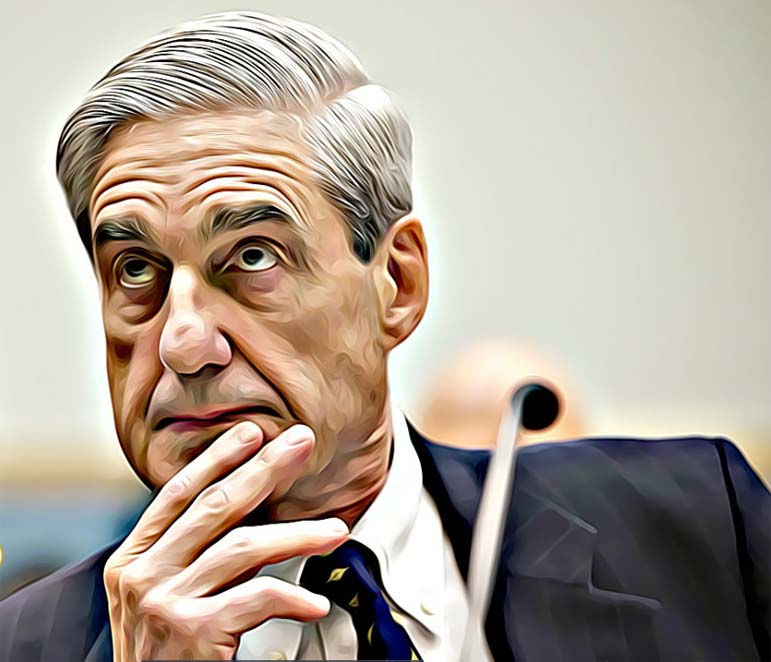
I understand the concerns forcefully articulated by the president's allies about political bias. Throughout my service as Whitewater independent counsel during the Clinton years, my colleagues and I were continually branded as partisan Republicans, part of Hillary Clinton's vaunted "vast right-wing conspiracy."
In truth, my colleagues were a mixed bunch politically. A number had voted for Bill Clinton in 1992, and I didn't ask, ever, about party affiliation. As I see it, Rosenstein is right to flag First Amendment considerations when pressed about the Mueller team's one- sidedness in their virulently anti-Trump political leanings. But what has been revealed thus far implicates the integrity of the entire process. Unfortunately, in these hyperpartisan times, Mueller has chosen poorly by having smart but deeply politicized senior aides.
The cascading revelations of anti-Trump bias should give all fair-minded observers pause. The appearance of politically inspired prejudice of power-wielding investigators and prosecutors has taken hold in the public consciousness. Calls are increasingly heard for appointment of yet another special counsel. Other voices suggest creating an ad hoc, temporary position within the Justice Department to examine the landscape of Justice-FBI actions in the chaotic events of Campaign 2016, including recently revealed connections to the infamous Fusion GPS dossier.
What to do? From my perspective, the answer lies not in appointing more special counsels or anointing an internal senior counsel. Don't go there.
First, I join my friend Alan Dershowitz in decrying the heavy overreliance on the criminal-justice system. We need to move toward decriminalizing presidential politics, relying instead on basic policy and legal measures, such as disclosure and anti-bribery laws.
Second, as to process, the Mueller experience reminds us that any special counsel - even a Vietnam veteran boasting an impeccable record of service in the administration of justice - will sooner or later be subject to withering, confidence-eroding attacks. So, too, will any senior counsel armed with a broad mandate to examine the FBI's handling of the Hillary Clinton investigation and the launch of the Trump inquiry. Among other impediments to getting the truth-finding job done, either a special counsel or senior counsel would have to set up an office, secure personnel and otherwise create what would be, in effect, a startup operation. That takes time.
All things considered, the best way forward in our separation-of-powers system is suggested by our basic structure of government. It's time for the Article I branch - the legislature - to step up and carry on more effectively its historic role of truth-seeking oversight. Specifically, it's time to consider the appointment of a bipartisan Select Committee, preferably in the Senate, with highly experienced, respected members chosen by the majority and minority leaders. This is the Watergate model. The Select Committee's mandate would be broad - to examine all issues relating to Russian interference in the 2016 presidential campaign and to open the hearings to the fullest extent practicable.
History shows the wisdom of repairing to the institutions ordained at the American Founding. The Watergate Select Committee uncovered the Nixon tapes; during the Clinton years, a House committee uncovered the FBI files scandal. To amend Alexander Hamilton'sinsight about the executive branch, at this time in our history the country needs "energy in the Congress." Of course, it's harder to imagine pulling this off in these hyperpartisan times. But that's our system. We should use it.
Whatever the mechanism, congressional deference to the executive branch - whether its conduct of criminal investigations or of internal ethics inquiries - should be jettisoned. As the months roll by, the primary goal should be comprehensive truth-finding and prompt reporting to the American people. The executive branch's operations are particularly ill-suited to achieving those compelling goals.
For this to happen will require a fundamental - and unwelcome - reset within the halls of the executive branch. Both the Justice Department and FBI need to voluntarily - without threats of contempt proceedings - embrace the reset.
It's high time for the U.S. government to embrace the Louis Brandeis solution: sunshine as the great disinfectant. The Justice Department and the FBI should amend their Article II executive-branch playbook of internal review (through the inspector general) and substitute a radically reformed policy of full cooperation with Capitol Hill.
This is the time for the FBI and Justice Department to err on the side of credibility - restoring disclosure and cooperation with Congress. In the process, Mueller will do well to assure the American people that he has Marine-like command over a fundamentally honest criminal-justice process, where investigators and prosecutors leave their politics at the door. Honor needs to be restored to the battlefield.
Starr, a former U.S. solicitor general and federal judge, served as independent counsel in the Whitewater and Monica Lewinsky investigations during the Clinton administration.


 Contact The Editor
Contact The Editor
 Articles By This Author
Articles By This Author